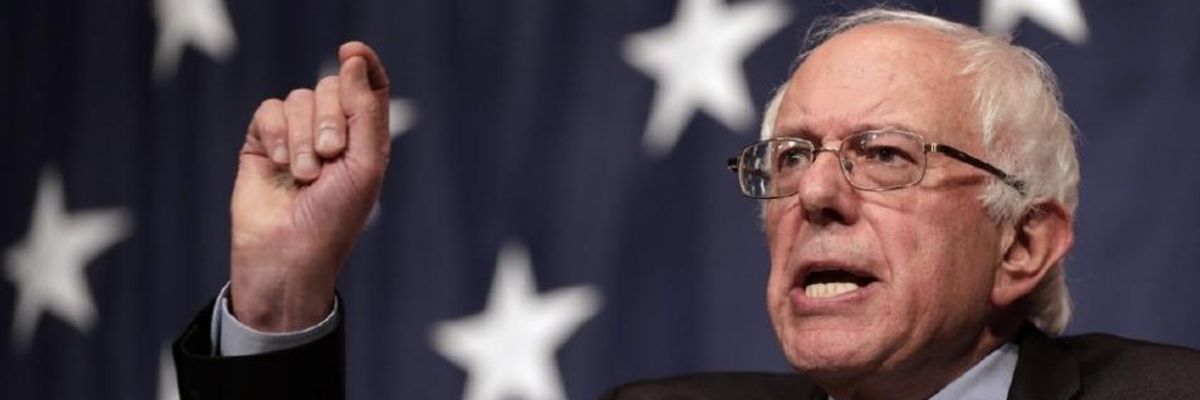While President Donald Trump attempts to place blame for the enduring opioid addiction crisis on immigrants, Sen. Bernie Sanders (I-Vt.) announced Tuesday that he would introduce legislation to take aim at those who drug policy experts agree are truly behind the epidemic that kills tens of thousands of Americans per year--pharmaceutical companies and executives.
"At a time when local, state and federal governments are spending many billions of dollars a year dealing with the impact of the opioid epidemic, we must hold the pharmaceutical companies and executives that created the crisis accountable," said Sanders in a statement.
The bill (pdf) would threaten Big Pharma executives with at least 10 years in prison should their companies be found guilty of contributing to the opioid crisis through manipulative marketing practices. Executives would also face fines equal to their total compensation packages, while companies would be fined $7.8 billion--one-tenth of the annual cost of the public health epidemic, according to government estimates.
Under the legislation, companies would be required to clearly state that opioids are addictive in any marketing materials for the drugs, which include popular brands including OxyContin, Vicodin, and Percocet.
The roots of the opioid crisis are traced back to the 1990s, when Purdue Pharma, the maker of OxyContin, began marketing the drug as safe for long-term use for chronic pain, denying that prescription opioids--which are chemically similar to heroin--had highly addictive properties.
After opioid painkiller prescriptions skyrocketed as a result, the rate of overdose began to rise as well, with opioid overdoses killing at least 63,000 Americans in 2016.
In Ohio next year, Purdue is one of several drug companies that will face a jury trial over a lawsuit accusing them of "deceptively marketing opioids" and alleging distributors "ignored red flags indicating the painkillers were being diverted for improper uses."
But Sanders noted that no company has truly been held liable for the epidemic, which Purdue alone has make tens of billions of dollars off of in recent years:
In 2007, Purdue Pharma...pled guilty and agreed to pay more than $600 million in fines for misleading the public about the risks of the drug. But the company still made $22 billion off of the drug in the past decade.
"We know that pharmaceutical companies lied about the addictive impacts of opioids they manufactured," said Sanders. "They knew how dangerous these products were but refused to tell doctors and patients. Yet, while some of these companies have made billions each year in profits, not one of them has been held fully accountable for its role in an epidemic that is killing tens of thousands of Americans every year."
